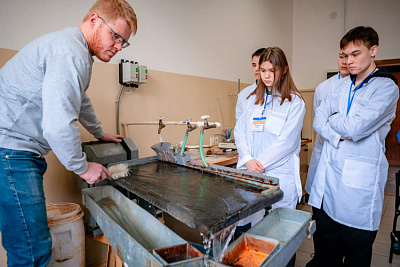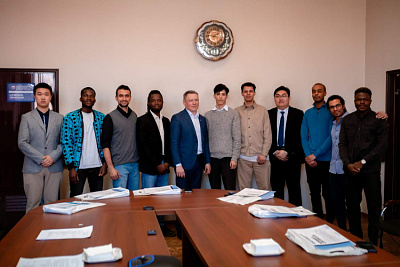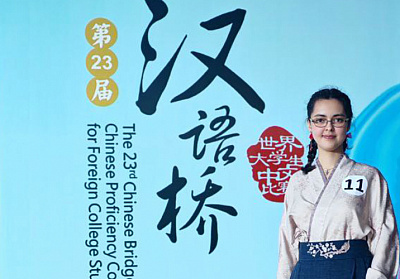Professor of INRTU Alexander Afanasyev presented the project of Russian-Chinese Master's program in Artificial Intelligence
The online event was initiated by the Ministry of Science and Higher Education of the Russian Federation and the International Union of Instrumentation and Information and Telecommunication Technology Professionals. On the Chinese side the event was organised by the Ministry of Science of the People's Republic of China, the Office of Science and Technology in Harbin. Harbin.
According to Alexander Afanasyev, unlike nuclear power projects, artificial intelligence develops openly, which is its advantage. When considering the prospects of application of artificial intelligence, scientists operate with new fundamental concepts.

"Multimodal neural networks are now being actively developed. Artificial intelligence is capable of interpreting the plot of an image - describing an event in words, given the context. The reverse process is also possible. Of great interest are colour algorithms that allow changing the palette of the original image, and a similar action algebra.
One of the most creative computer vision technologies is the generative network. The simplest example is to transfer the style of one image to another. With students, we are observing how a neural network styles the Shamanka rock (Olkhon Island) in the manner of the Impressionists", said Alexander Afanasyev.
It should be noted that a philosophy of machine intelligence has emerged. The range of ethical issues associated with the application of artificial intelligence technologies is expanding, and the legal framework for intellectual property protection is improving.
Computer vision is used in many fields: video surveillance, medicine, unmanned transport. This is why training specialists in computer vision is particularly relevant.
The professor proposes to open an online master's degree course in computer vision with a university in China. The educational track is unique in that it provides for a "levelling" period (several months). Students will study general subjects including English, Russian and Chinese (with a choice of subjects). Mathematics, physics and Python programming will also be included in the curriculum. The general education module will conclude with a session on machine learning algorithms with knowledge control.
The second and subsequent semesters will be devoted to the study of the profile disciplines "Deep learning in computer vision technologies", "Theoretical foundations of artificial intelligence", "Machine creativity", etc. The future specialists will defend their projects to prove their level of knowledge.
Professor Alexander Afanasyev added that graduates of this Master's program will solve cases in the interests of leading industrial companies in Russia and China:
"Irkutsk Polytechnic has successful experience in development and implementation of educational programs in the field of artificial intelligence. The University cooperates with such large companies as En + Group, Irkutsk Aviation Plant - branch of Irkut Corporation, etc.
The English-language master's program is aimed at expanding R&D ties of INRTU and attracting Chinese universities and enterprises to joint projects".
The scientist stresses that Irkutsk Polytechnic has a high quality of education. The pedagogical component of the educational process is also strong, as teachers practice an individual approach to students.
The report, which was voiced at the level of the Chinese government, received a great response from colleagues from the country's leading universities. Yutao Zhu, President of the School of BRICS for the Study of Future Networks, expressed his gratitude to Alexander Afanasyev for his active participation in the round table.
The Irkutsk Polytechnic has now received several offers of cooperation.



